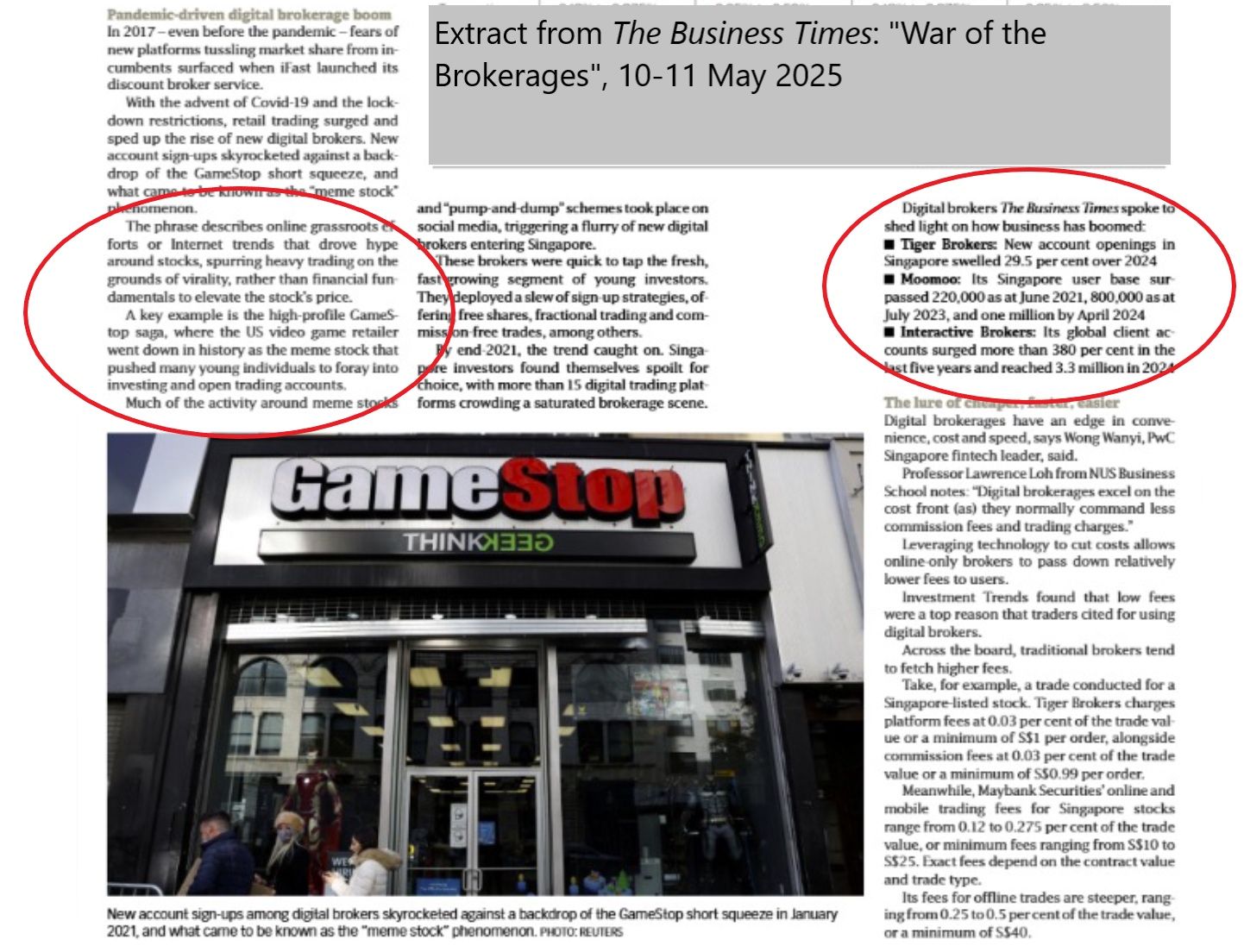Note: It was announced in November 2023 that MoneyOwl will be acquired by Temasek Trust to serve communities under a re-purposed model, and will move away from direct sale of financial products. The article is retained with original information relevant as at the date of the article only, and any mention of products or promotions is retained for reference purposes only.
______________
Long-term investments are better than reacting to the market’s short-term changes. Our investment team explains why long-term investment is a better investment strategy.
(10 October 2022 – 14 October 2022)
Global equities fell last week, failing to extend the previous week’s positive performance and posting the seventh negative result out of the past nine weeks. The S&P 500 and MSCI World Index were down 1.55% and 1.70%, respectively. In Fixed Income, the US 10-year Treasury yield rose 14bps to 4.02% while the Bloomberg Barclays Global Aggregate bond index was down 1.08%.
Thursday was a roller coaster as US’ monthly inflation report sent stocks and Treasury yields on a wild ride. Shortly after the US trading day began after the opening bell, the S&P 500 index fell as much as 2.4% before reversing course and rising 3.0% for the day before closing with a 2.60% gain. In the short-term interest rate futures market, the expectation of a 75bps interest rate hike by the Federal Reserve was denoted at 100% after the hotter-than-expected inflation report.
In the upcoming weeks, a handful of major US banks will kick off their earnings announcements for the quarter as the US enters the earnings season. Analysts forecast third-quarter earnings for companies in the S&P 500 will rise by an average of 2.4%, which will be the lowest earnings growth rate in two years.
The ‘Reacting’ Approach
Last week’s price action on Thursday is a reminder from the markets to investors that it pays to stay invested for the long term and diversify your investments, rather than deciphering short-term movements and possibly suffering losses in the process.
It is never wise to bet on short-term movements with money you hope to have in your retirement, for your children’s education or even allowance for your parents. Instead, investing should be a long-term journey of staying invested and globally diversified to allow you to reap the benefit of inflation-beating returns over time.
Reacting Can Hurt Performance
To illustrate the importance of investing for the long-term rather than dancing to the ‘deadly tune’ of short-term market movements. The chart below shows the importance of staying invested in order to capture the long-term expected market returns. Missing out on even a few of the market’s best days each year can have a significant impact on cumulative returns.
Performance of the S&P 500 Index, 1990-2021

Some may subscribe to the ‘buy low, sell high’ investment strategy. Yet, following an emotional investment cycle sparked by reactive decisions may bring the opposite effect: buying at higher prices and selling at lower prices. It is also extremely difficult and stressful to accurately time the market on a consistent basis. At MoneyOwl, we strive to serve our clients better by encouraging and reminding them to stick with their agreed-upon investment plan and ignore the market noises so that they and their families can reap the benefit over the long term.
Inflation’s Persistence
Despite five interest rate increases this year from the US Federal Reserve, Thursday’s Consumer Price Index release showed that key drivers of inflation aren’t settling down. September’s annual rate fell to 8.2% from 8.3% the previous month. However, excluding volatile food and gas prices, core inflation rose to a higher-than-expected 6.6%—the biggest jump in four decades.
Yield Thresholds Breached
For the first time since October 2008, the yield of the US 10-year Treasury bond eclipsed 4.00%. The yield climbed above that level briefly on Thursday in the wake of a monthly inflation report before rebounding to close at 4.01% on Friday. The 2-year Treasury yield also rose, reaching 4.50%—the highest since August 2007.
Oil Reversal
A diminished outlook for global economic growth weighed on the price of US crude oil, which fell 7% for the week to less than $86 per barrel on Friday. The decline marked a sharp turnaround from the previous week when oil soared nearly 17% after the OPEC consortium announced production cuts.
Shrinking Global Expectations
The International Monetary Fund scaled back its global economic growth projection for 2023 from 3.8% to 2.7% and warned about the potential for recession in many countries if policymakers failed to successfully navigate inflation risks.
Another Intervention in Yen?
The Japanese yen weakened to a fresh two-decade low after Bank of Japan Governor Haruhiko Kuroda vowed to keep monetary policy loose to support economic recovery. It fell to 146.86 per dollar after Kuroda’s comments, surpassing the 145.90 level that had previously prompted Japan’s nearly $20 billion intervention to buy the currency in September. It is one of the world’s few remaining central banks maintaining rock-bottom rates.
Read more Market Insights here.
Disclaimer: While every reasonable care is taken to ensure the accuracy of the information provided, no responsibility can be accepted for any loss or inconvenience caused by any error or omission. The information and opinions expressed herein are made in good faith and are based on sources believed to be reliable but no representation or warranty, express or implied, is made as to their accuracy, completeness or correctness. Expressions of opinions or estimates should neither be relied upon nor used in any way as an indication of the future performance of any financial products, as prices of assets and currencies may go down as well as up and past performance should not be taken as an indication of future performance. The author and publisher shall have no liability for any loss or expense whatsoever relating to investment decisions made by the reader.
Follow MoneyOwl on social media for more awesome content on investments, insurance, and financial planning!




